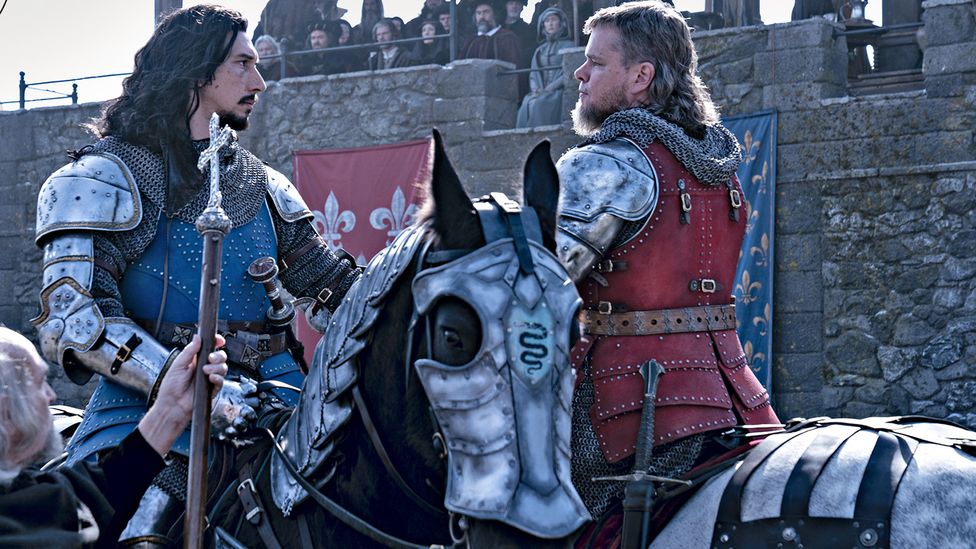
Things get hairy in The Last Duel, and not just metaphorically. In this proudly old-fashioned, deceptively intricate medieval drama from Ridley Scott, a fraught marriage faces down a crucible of inequality—social, emotional, and intellectual, yes, but most of all follicular. As Jean de Carrouges, a hirsute warrior in perpetual need of both a paycheck and a shower, Matt Damon is armed with a bushy blond beard and an infested mullet that would make Joe Dirt jealous. Opposite him is Jodie Comer as Marguerite, whose flowing locks are regularly woven into elegant braids or neatly arranged into symmetrical ringlets. Gender disparity is the movie’s primary theme, one that’s tidily symbolized by Carrouges’ flagrant untidiness.
Coyly patient and sneakily stimulating, The Last Duel’s complexity reveals itself slowly, so much so that it initially seems familiar and drab, another of Scott’s ponderous Middle-Age epics. (Other examples include the underrated Kingdom of Heaven, the forgettable Robin Hood, and that one about the entertainer with the sword.) The superb screenplay, which Damon co-wrote with Nicole Holofcener and his bestie Ben Affleck (from a book by Eric Jager), cleaves neatly into three chapters, with each replaying the same series of critical events from the perspective of a different character. The first, which centers on Carrouges, is by far the weakest, though this is less a matter of poor execution than a byproduct of the script’s adroit design. Before surprising us with slippery variations and clever shifts in point of view, Scott and his writers must undertake the functional, somewhat laborious work of sketching out the film’s basic conflict.
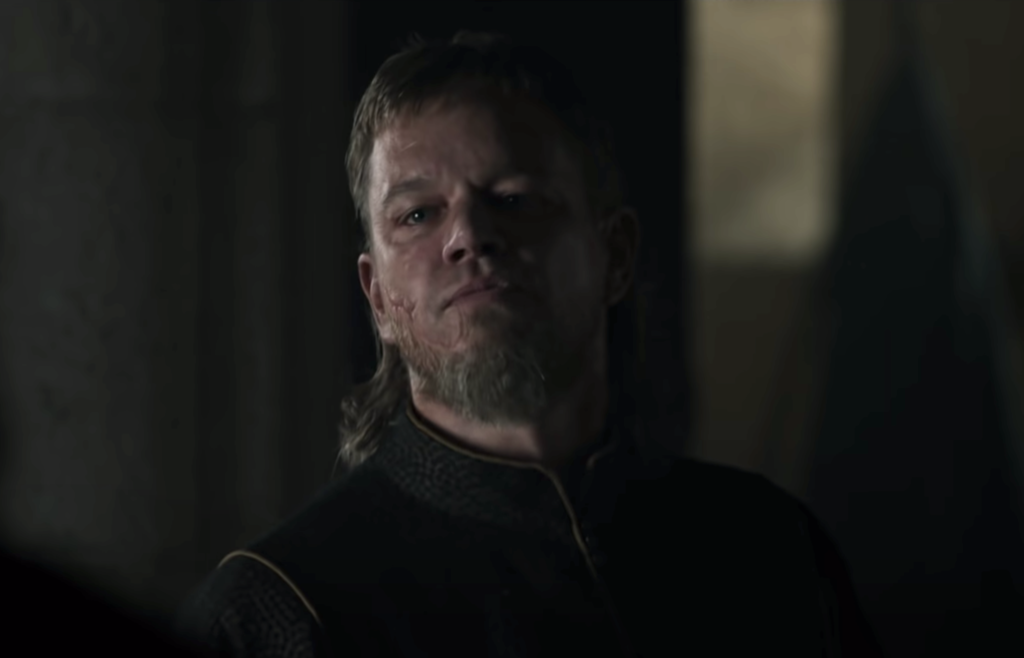
Which is somehow both complicated and straightforward. Carrouges, a vassal of King Charles VI (the setting is 1370s France), is close friends with Jacques Le Gris (Adam Driver), a squire who is less nominally successful than Carrouges but nonetheless more accomplished. This is true in terms of standing as well as intelligence, as Le Gris has the ear of Count Pierre d’Alençon (played with delightful wit by Affleck), an impetuous overlord who disdains Carrouges’ dreary ruggedness. Desperate for cash and hungry for land, Carrouges weds Marguerite, less for her considerable beauty than her sizable dowry. Or maybe not that sizable; once Pierre intervenes and bestows an estate to Le Gris that had originally been ticketed for Carrouges, a rift develops between the two erstwhile chums, one that gradually widens until it’s suddenly wrenched open into a gaping maw.
The essential stiffness of this opening passage—the French names and locations, the ornate dialogue, the talk of lands and titles, the overall miasma of antiquity—may cause your mind to wander a bit, not least because Carrouges is a bit of a drip. He fancies himself a noble soldier, while Pierre and Le Gris mock him as an illiterate stooge; the truth lies somewhere in between, but he’s dull company regardless, despite Damon’s committed anti-glamour. (As if his hair weren’t bad enough, an unsightly scar has been scrawled into his right cheek.) As a result, you may find yourself more interested in the movie’s visual design, which is expensively ugly. Scott routinely constructs gorgeously alien worlds, but here he seeks to demythologize the allure of ancient opulence; even the grand castles seem to stink of piss and grime, while the washed-out color scheme is choked with greys and browns. Much like Damon’s performance, it’s easy to admire and not all that fun to look at. (The handful of warfare sequences, meanwhile, are almost intentionally haphazard, emphasizing the brutality of the violence while also suggesting that such scenes are incidental to the film’s real concerns.)
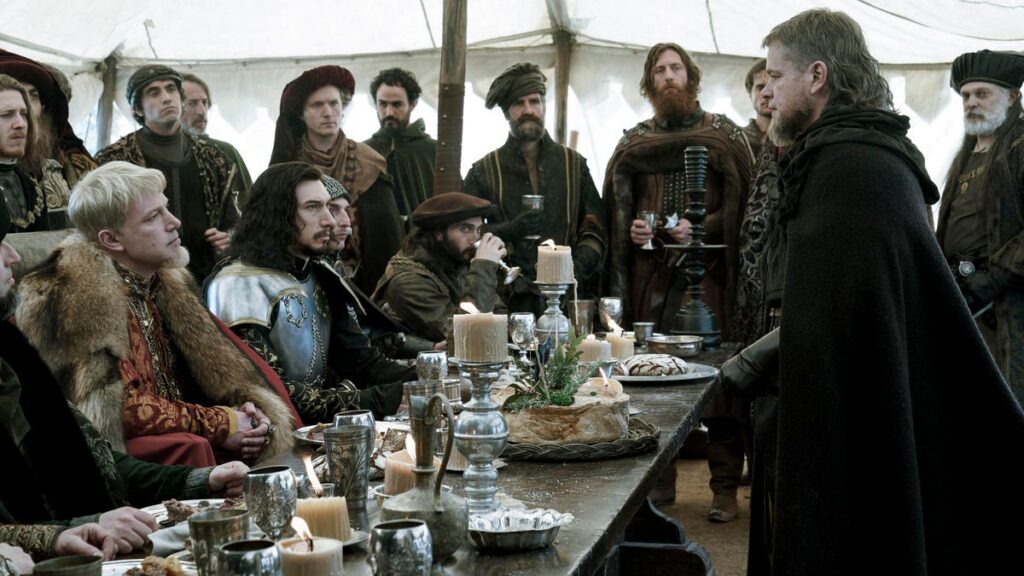
Happily, The Last Duel shifts gears in its second episode, which slides the focus to Le Gris and which becomes, against all odds, something of a debauched comedy. The movie’s most queasily enjoyable scenes involve the depraved partnership between Le Gris and Pierre, a union of mutual hedonism which unfolds in a high court that’s equal parts splendor and squalor. Substantial credit here must go to Affleck, who’s saddled with his own feeble blond goatee but who nonetheless imbues Pierre with a delicious sense of entitlement. The film is full of terrible people doing horrible things, but there is something wonderfully sincere about the moment when Pierre answers a knock at his door and greets Le Gris with the line, “Come in! Take your pants off.”
Not all of the carnality in The Last Duel is so frivolous. Its inciting incident—the reprehensible crime that inspires the titular combat which both opens and closes the picture—is a traumatic encounter between Le Gris and Marguerite. As with many other sequences in the movie, we witness this scene twice (the film’s final, bleakest chapter belongs to her), and while it’s arguably double the punishment, it’s also where the rigorous screenplay pays enormous dividends. Scott isn’t typically a subtle filmmaker, but his approach to the script’s repetition is fairly ingenious. Rather than creating severe differences across the multiple scenarios, his Rashomon impression involves gentle tweaks: an altered line of dialogue here, a shared gaze there, a slight adjustment in tone—all invisibly accumulating to small but crucial changes in perspective.
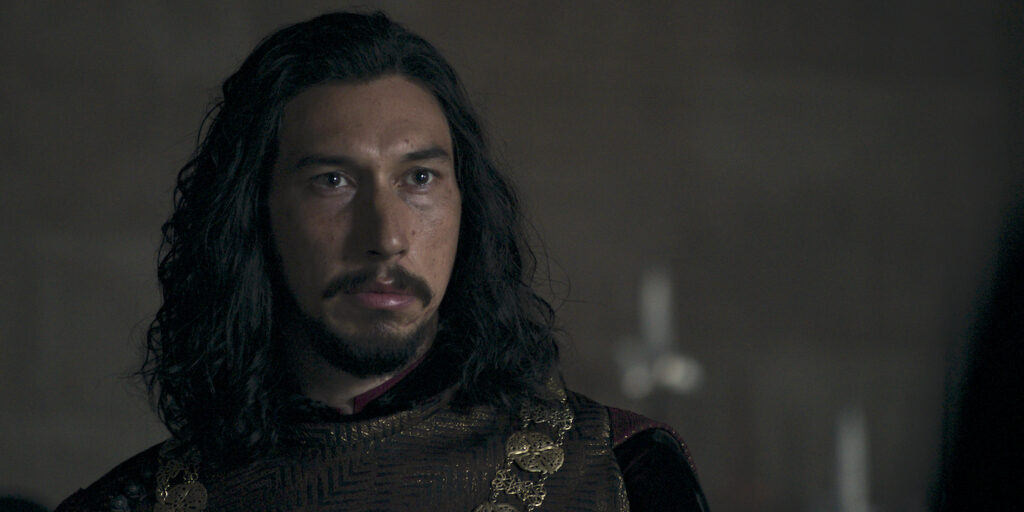
This is an intriguing conceit in general, but when applied to sexual assault, it becomes provocative and disturbing. One need not have watched Netflix’s Unbelievable (though one should!) to appreciate the stigma surrounding accusations of rape, and the corresponding difficulty in proving lack of consent. That the film’s (ahem) dual depictions of the violation don’t dramatically diverge taps into that corrosive vein of societal skepticism. It would have been easier for The Last Duel to paint its villain as a mustache-twirling monster, but the movie is braver than that; instead, Driver portrays Le Gris as a frighteningly plausible abuser, one who simply cannot perceive (remember what I was saying about perspective?) any actual wrongdoing. “She made the customary protests,” he acknowledges, a line that may as well be medieval-speak for the defense of, “‘No’ meant ‘Yes.’”
If anything, The Last Duel exploits its period inequality so eagerly as to undermine its own contemporary relevance. In the last chapter, Marguerite must endure a string of humiliating horrors, including an inquisition of sorts (led by a perfectly cast Zeljko Ivanek), as she’s forced to weigh her life versus her dignity. The script takes evident relish in ridiculing the absurdities of the era; we’re reminded that rape is a property crime against the husband, and of the scientific principle that nonconsensual sex can’t result in pregnancy. The latter line induced nervous laughter at my screening, but in highlighting how far we’ve come, the film inadvertently diminishes how far we must still go. A more effective scene arrives when Marguerite’s mother-in-law, played with just the right mixture of scorn and sympathy by Harriet Walter, describes the pointlessness of speaking out, questioning not Marguerite’s honesty, but her wisdom.
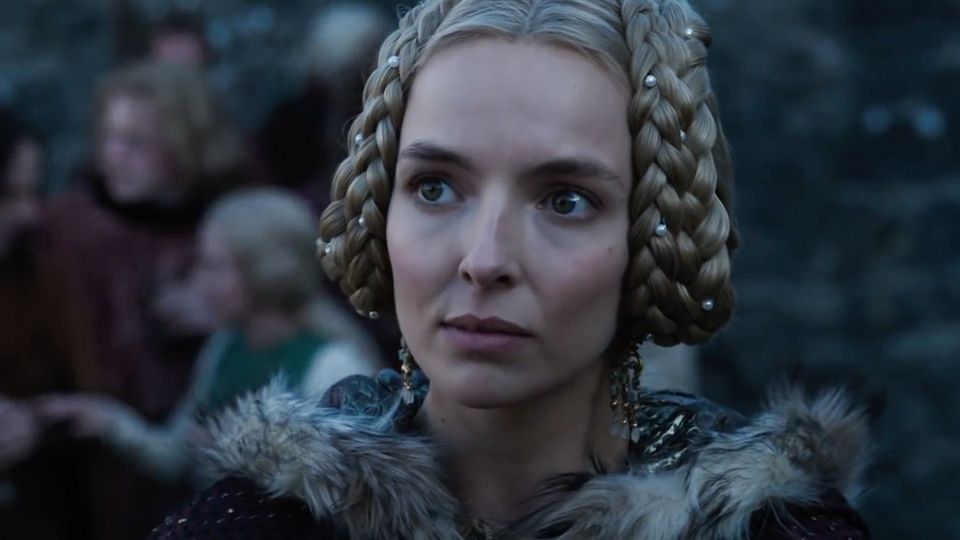
Ultimately, Marguerite is both the most important character in The Last Duel and an afterthought of its masculine preoccupations, a casualty of the prideful men who swing their swords and their dicks around in a feverish effort to safeguard their so-called honor—no matter that her actual life hangs in the balance. The movie seems to recognize this without fully correcting for it; after all, as the title implies, the bloody battle between Carrouges and Le Gris is its long-awaited climax and obvious centerpiece. (It’s also the one time where Scott takes some care in his fight choreography, though the action is occasionally too blurry to be coherent.) To the extent the film resonates beyond its curlicued screenplay, it’s mainly thanks to Comer, who manages to convey fury, terror, righteousness, and despair, all in the space of a few scenes. Marguerite is a victim, yes, but she’s also a hero, and Comer, via small gestures and sharp glances, emphasizes her centrality to the story precisely by refusing to insist upon it. Perhaps that’s another unexpected lesson of The Last Duel. In society at large, women are still grossly disadvantaged, but up there on the movie screen, equity has been all but achieved.
Grade: B
Jeremy Beck is the editor-in-chief of MovieManifesto. He watches more movies and television than he probably should.

Considering the heavy analysis that goes into reviewing, does the visceral feeling to the movie dissipate at all?
Not really. Writing helps me process my thoughts, and thinking more about a movie can change my overall appreciation of it. But as far as visceral impact goes, that rarely changes.